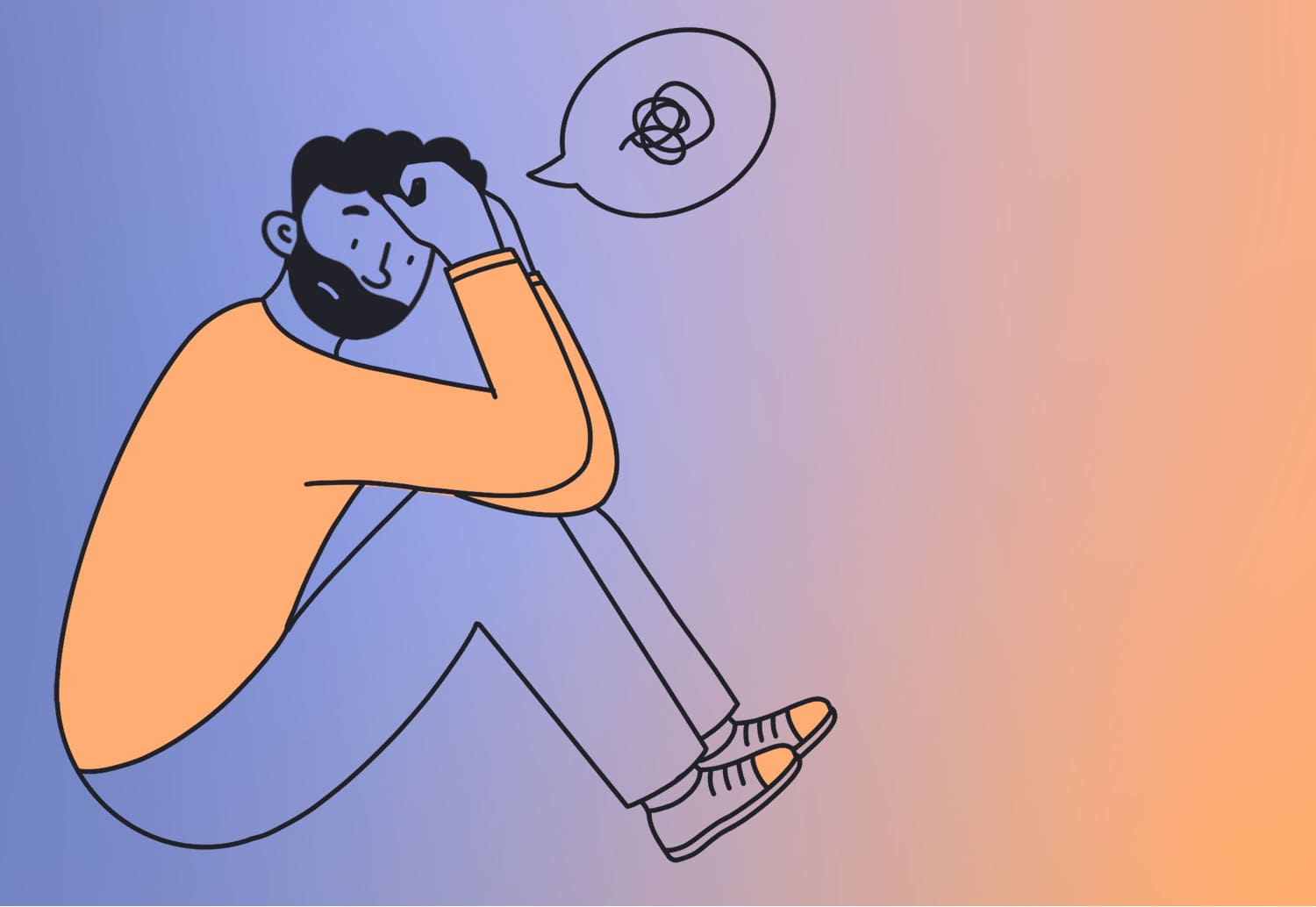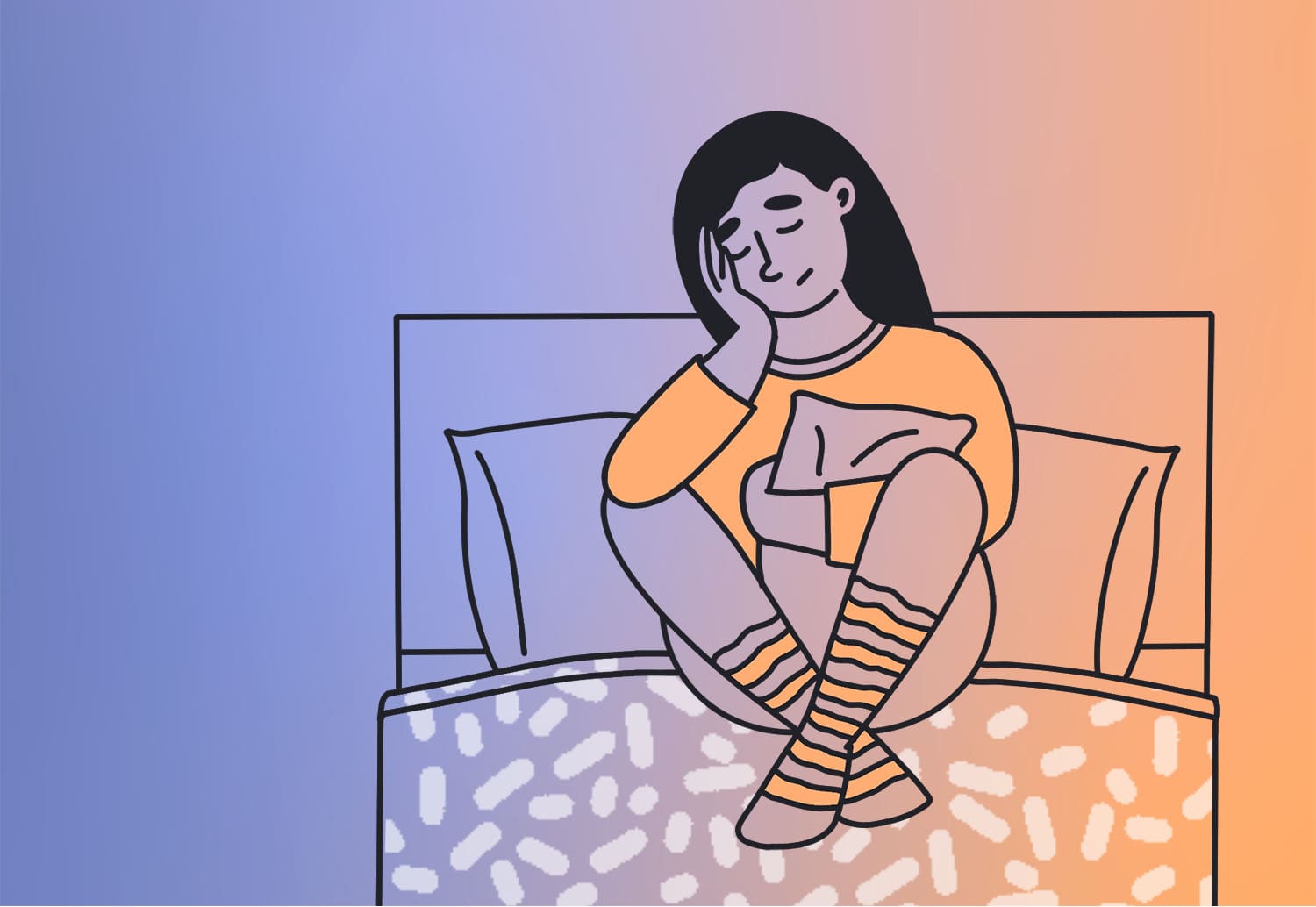Loneliness is a pervasive issue in society, affecting people of all ages. Most of us have experienced loneliness at one point or another and associate it with feelings of isolation and depression. But did you know that it can also have a negative effect on sleep? Loneliness can make it harder to fall and stay asleep, and impaired sleep can lead to a number of health conditions.
In this article, we’ll take a look at how to identify signs of loneliness in yourself and others, the people most likely to experience loneliness, and how it can affect your sleep and health. We’ll also share some helpful tips for dealing with loneliness and the sleep loss associated with it. Let’s get started.
Keep in mind that we are not medical or psychological professionals. We recommend speaking with your doctor before implementing any health or lifestyle changes.
Signs of Loneliness
Many people will experience short bouts of loneliness throughout their lives. Though unpleasant, these periods tend to pass relatively quickly. However, when loneliness goes on for a long period of time, it is considered chronic loneliness, and it can have a negative impact on health.
It’s important to be able to identify the signs of loneliness so that you can reach out for proper help for yourself or a loved one you suspect is suffering. Knowing the signs will also help you rule out any other conditions you might be dealing with.
Loneliness doesn’t have just one telltale sign or symptom. Rather, a series of feelings and behaviors will illustrate the condition. Take a look at some of the signs below.
- Persistent feelings of tiredness
- Social anxiety
- Isolating oneself
- Taking long hot showers or baths
- Spending a lot of time on social media
- Weight gain
- Feeling sick frequently
- Lack of sleep
- Blowing things out of proportion
- Body aches/pains
- Confusion/memory problems
If you or a loved one is experiencing two or more of these symptoms, it might be time to consider loneliness as the root cause.
Who May Experience Loneliness
Anyone can experience loneliness. Even the most outgoing people can deal with a series of circumstances that lead them to feel lonely. Social isolation is one of the most common causes of loneliness. That isolation can be either physical, as in the person is often by themselves, or mental, in that they perceive their lived experience to be isolating them from others. Take a look at some of the people who are likely to experience loneliness.
Those experiencing grief- People who have recently lost a loved one are likely to feel isolated and alone, particularly if that loved one was someone very close to them, like a partner. Widows and widowers are particularly susceptible to loneliness, and care should be taken to check in on them. Additionally, those who have recently lost someone are likely to experience feelings of isolation in mourning.
Those with mental health conditions are likely to feel lonely as their condition can make socialization difficult. Additionally, those with mental health conditions are more likely to isolate themselves. Depression is a common cause and effect of loneliness as well.
Seniors often have feelings of isolation as they experience deaths of friends, family, and neighbors. They also may have children who live far away, making connection difficult. Loneliness is more serious in seniors as it can put them at greater risk for dementia and other mental health conditions.
If you have an elderly relative, friend, or neighbor, make an effort to have a conversation with them. Though doing this in person is best, calling over the phone also works.
Divorcees can experience loneliness as they adapt to life without their partner.
Parents often go through empty nest syndrome when their children leave home for the first time. This feeling can be brief or more prolonged.
Students can also experience feelings of isolation. Though they may be surrounded by their peers at school, common problems like bullying can lead children to feel alone.
To help face loneliness at school, try and ask a classmate some simple questions to start a conversation. See if someone wants to study with you after school. By making some small connections you’ll be able to feel less isolated. Remember, you’re likely not the only one experiencing loneliness, so you might be reaching out to someone who is looking for a new friend.
Recent grads often feel lonely, particularly those who move to a new city alone.
High social media usage is correlated with increased feelings of loneliness. Social media can make you feel lonely by increasing the fear of missing out and lead to more anxiety. Social media often makes it appear that others are constantly doing something fun, when in reality it’s more of a highlight reel.
Those working from home are also at risk for loneliness. Since they are no longer surrounded by coworkers in an office setting, they may be at home alone all day, which can be isolating.
Relationship Between Sleep and Loneliness
Loneliness and sleep impairment are exacerbated by one another. When you’re feeling lonely, your sleep is likely to suffer, and when you’re not sleeping well, feelings of loneliness can worsen. According to Meera Watts, Founder at SiddhiYoga, “Sleep isolation has been shown to lower sleep efficiency and increase wake time, especially in growing adults.”
However, there are ways you can cope. Watts suggests connecting with someone before bed to help you feel less isolated before sleeping. Additionally, she suggests cuddling with a teddy bear or using a weighted blanket to help calm yourself.
Covid-19 and Sleep
Both Covid-19 and the stresses of the pandemic can have an impact on sleep. In particular, both having the disease and worrying about it can lead to feelings of isolation and loneliness. It can be hard to treat these types of loneliness, as you often can’t congregate with others in person.
However, there are ways to combat loneliness when you have COVID-19 or are in lockdown.
Dr. Lea McMahon LPC, EdD, Chief Clinical Officer at Symetria Recovery, says “The best tip for treating loneliness is to probe more online communities considering the current circumstances with COVID.” Connecting with people on the internet is a good way to fight off feelings of isolation. McMahon suggests looking for online groups of people who share similar interests. “Most importantly, erase the fear of social isolation from your mind by taking more risks, approaching more people based on your interests,” McMahon says.
Check out our guide on how to sleep with COVID-19 to learn more.
Consequences of Poor Sleep Over Time
When you’re not getting proper sleep, your body isn’t able to perform optimally. That’s because there are a number of metabolic processes that occur during sleep and require you to be in a state of rest. Take a look below at some of the most common problems associated with sleep loss.
- Diabetes
- High blood pressure
- Heart disease
- Depression
- Obesity
Health Effects of Loneliness
Human beings have adapted to be social creatures; we’re not accustomed to feeling isolated, nor is it good for us. In fact, loneliness can have real negative effects on our health. According to Dr. Bryan Bruno, Medical Director at Mid City TMS, “When we feel isolated, our bodies often experience a rise in cortisol, a natural stress hormone that produces a state of increased awareness.” Though Dr. Bruno shares that cortisol is good during times of stress, prolonged production can have negative effects on our physical and mental health. “Cortisol increases levels of anxiety, depression, and restlessness,” he says.
However, there are ways to reduce the increased levels of cortisol associated with loneliness. Dr. Bruno suggests meditation, physical exercise, and a well-balanced diet. Decreasing caffeine intake can also be beneficial. In terms of decreasing loneliness itself, he says: “We can help alleviate loneliness by seeking out social interaction. Whether you interact with family, friends, classmates, or strangers at the supermarket, talking to people can help to combat the ill effects of loneliness.”
Chronic loneliness
As discussed earlier, chronic loneliness is loneliness that persists for a prolonged period of time. It is more serious than short-term feelings of isolation, as it is more likely to result in negative physical and mental health effects. Take a look at some of consequences of chronic loneliness:
- Poorer mental health. Loneliness can lead to depression and anxiety.
- It can impair the immune system and make you more likely to get sick.
- Increased cortisol levels can lead to higher blood pressure.
- Heart health can decrease, as related to higher blood pressure.
- Substance abuse is more likely.
- Increased risk of weight gain.
Help and Tips for Those Experiencing Loneliness
Though loneliness is a complex problem that will require targeted solutions for each individual, there are a few ways you can help reduce negative feelings associated with loneliness. Take a look at some of Mattress Clarity’s suggestions.
Try a Weighted Blanket
Weighted blankets have been proven to help reduce feelings of stress. According to Dr. McMahon, “Weighted blankets are known to increase serotonin and melatonin while decreasing cortisol simultaneously.” This allows them to promote feelings of relaxation and peacefulness, which can help improve cognitive function. If you’re looking for a high-quality weighted blanket with great weight distribution, check out the Gravity Weighted Blanket. If you’re after a different type of weighted blanket, we’ve got lots to choose from in our best weighted blankets for anxiety roundup.
Hobbies
Picking up a new hobby or returning to an old one can be a great way to combat feelings of loneliness. Whether the hobby is individual or relies on a group, you can always connect with others who share your interest. Take a look at some common hobbies below.
- Book club
- Chess
- Sports
- Volunteering
Take Care of Yourself
One of the most important things you can do to manage the negative physical and mental health effects of loneliness is to take care of yourself. You’ll want to ensure you’re doing as much as you can to keep your body and mind functioning properly. Below are four of the best things you can do for your body and mind.
- Regular exercise
- Proper nutrition
- Therapy
- Sunlight
Final Thoughts
Loneliness is a common feeling that most individuals will experience in their lifetime. However, when that loneliness becomes chronic, or continues to return time and again, it can lead to negative health effects, including impaired sleep. However, there are a number of ways you can combat loneliness and its resulting negative consequences. Reaching out to friends and family, picking up a hobby, taking care of yourself, and trying out solutions like a weighted blanket are all ways you can help alleviate symptoms. Remember, we are not medical professionals, so reach out to your doctor before you implement any health or lifestyle changes.


